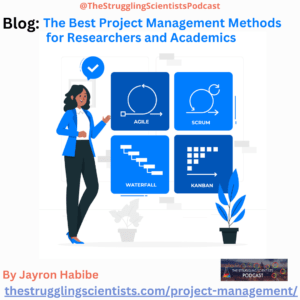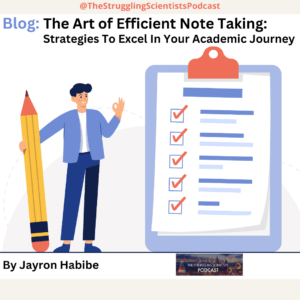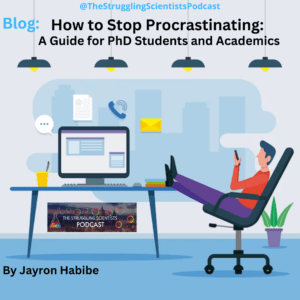Mental models are our personal, internal representations of external reality that we as people use to interact with the world around us. They are best used for problem-solving, decision-making, and understanding problems from different perspectives.
“I believe in the discipline of mastering the best that other people have ever figured out. I don’t believe in just sitting down and trying to dream it all up yourself. Nobody’s that smart.”
-Charlie Munger (Vice chairman of Berkshire Hathaway)
Mental Models are a concept that became popularized by Charlie Munger in a speech he gave in 1990. During this speech, he noted the approach to practical wisdom through understanding mental models by saying:
“Well, the first rule is that you can't really know anything if you just remember isolated facts and try and bang 'em back."
Now granted Charlie Munger is an investor so not all of his mental models apply to academia and PhD students but they are still useful to approach complex problems.
While Charlie has over 100 mental models that he uses, I think a few are more valuable to us as PhD students than others but here are a few that I found particularly useful.
Hammer vs Swiss army knife approach

To the person with a hammer, every problem looks like a nail, instead be the person with a Swiss army.
This first mental model summarizes the use of mental models very succinctly as by definition it insists you have multiple tools for a problem as opposed to just one.
You never want to be stuck having to use one tool for every job or problem. Certain tools and resources are just built for a specific job and outperform tools that aren’t built for that job. You should always want to have the right tool for the right job.
Now given that we all realize and understand that we need different tools for different jobs. Why then do we often stick to the same methods, strategies, and paradigms for decision-making and problem solving when other approaches might serve us better?
As academics and researchers, we should have a repertoire of mental models and problem-solving tools at our disposal to tackle all the complicated questions we face on a daily basis yet for some this is not the case.
The majority of academics reach a high standing in their field by essentially mastering the mental models and knowledge of their chosen field. This makes them experts as they are perfect for tackling problems in their respective fields of expertise but often very poor at other adjacent fields or even at new challenges that emerge within their own field.
Science is developing faster than ever before and while you cannot be an expert in everything it certainly will help to understand the fundamentals of topics that are emerging in your area of research and to be able to draw on that knowledge as needed.
The unfortunate truth though is that our brains are lazy and when faced with the prospect of relying on approaches that have worked previously vs re-evaluating the situation and trying a different solution that might fit the problem better we often lean on the familiar tried-and-true over the unknown and uncertain.
While the familiar method may yield results it will usually do so in a way that tries to constrain and contort the problem to the method used to solve it. This in turn will lead to erroneous conclusions more often than not which is especially bad in the case of academic research.
Invert, always invert

Sometimes it’s difficult to answer a question but usually, it’s easier to answer the opposite of that question and get insights like that.
Example: What makes for a great life? That’s hard to answer because that will depend on the individual right?
True, so while it may be hard to answer that we can still answer the opposite question namely “What makes for a terrible life?”
Some of your answers will likely include having poor health, no friends or family, no sense of purpose in life, no joy, and so on.
Now if you invert those examples you will quickly see that you would like to be in good health, have friends and family, feel a sense of purpose, and feel genuine joy in life. Simple right?
So while the first question is difficult the second question is easy and provides a starting point as to what we should avoid to have an okay life.
While not applicable to every question this method is particularly good at helping you come to an answer that at the very least is not catastrophically wrong.
For a more scientific example think of the expression of a gene that we want to understand what its function is.
In this example, if we were to knock it out (get rid of it) it would kill off all of the cells we are using to test it.
Well, what you could do then is to overexpress the gene and see what the opposite effect is and then reason from there what the function of the gene is.
Crush your cherished beliefs

Your beliefs only serve you in as far as they are accurate representations of the world. If they are wrong then it is you who is serving them and not the other way around. Be prepared to crush them the moment they stop being useful.
As academics, we are all familiar with the concept of testing our hypothesis and how that helps us determine whether our hypothesis/idea actually holds up to rigorous testing.
This is a great approach as it helps us to reassess our previously held notions and beliefs and learn from them to be more accurate the next time around.
Unfortunately, some academics hold on to their beliefs harder than others in the face of evidence either because of ego, pride, or being incentivized to maintain a belief that has benefitted them in the past.
In the long run, though it serves us best to put our beliefs to the test and determine for ourselves whether they still hold up to rigorous scrutiny.
Simply put, we should approach scientific research as truth seekers, not as lawyers defending the existing paradigm when faced with a new one.
Opportunity cost

Everything we do costs, time, energy, and resources, and usually when we do X we cannot go back and do Y. So given this, it’s essential to always consider in choosing to do something, what then are we saying no to.
This is true of everything we do. With a limited amount of time in a day, physical and mental energy, and limited funding, there are only so many things we as PhD students can do during our PhD. Yet we often don’t consider the opportunity costs that come with doing a PhD.
At its core, opportunity cost is a mental model that aids you in considering the rationale for doing something as well as the resources available to accomplish it compared to doing something else.
Most PhD students (and some senior academics as well) I’ve talked with seemed to always evaluate decisions as “well what’s the upside?”
- will I be an author on the paper?
- will this paper be published in a higher impact factor journal
- will my cv look better by doing this?
Evaluating the upside is good but again nothing is ever free. The project with the highest upside will likely be the most difficult project that will also require the most time and effort and with the least likelihood of success. Hence greater opportunity costs.
This logistical, as well as strategic approach to project management, is something I personally found lacking during my PhD and that I notice with others as well.
In many cases, it’s just expected of us that we will muster the time, energy, and conjure resources out of nothing to accomplish what is needed. This mindset often leads to lacking in other important areas of your life as success in one narrow field was defined as more important than the repercussions other areas would endure.
Since understanding opportunity costs better I’ve gained more of an appreciation for my time and energy which are both finite resources and how I choose to allocate them.
Given the various options in my life that I can choose to allocate my time and energy, I’ve chosen to make different decisions than I would have otherwise a few years ago when I started my PhD and that is a good thing.
Incentives

One of the most useful mental models you can learn is that different people have different incentives as to why they do what they do in life.
If your salary was tied to how well you performed at your job, you would likely work harder to achieve a better outcome. The same is true for negative outcomes as well however fortunately nowadays we can just opt out of most things where the latter is the case.
Incentives are powerful as they can motivate people to accomplish things they otherwise would not but they can also be used to exploit others with very few options.
A good incentive would be that your PI may offer you a postdoc position at the lab for all the hard work you put in during your PhD. A bad incentive would be when a PI has lab members compete for 1st authorship on a paper based on who works hardest for it.
As academics, we likely assume that most others are as rational as we are and are incentivized by the same things we are ( at least those who are also in academia) however that is not always the case.
As you can see incentives can range from highly motivating to downright exploitative in some cases. Additionally, incentives can be in conflict with each other even among people working on the same project.
In the case of a PI and PhD student working to publish a paper, it may be the case that the PI would like to publish the paper with as high impact as possible while the PhD simply needs a publication to finish their PhD.
While both want to publish the paper the PI would likely demand more experiments and more work from the PhD student to achieve the desired outcome while the PhD student may have been content to submit the paper at an earlier stage.
So take home messages for incentives.
Pretty obvious but never ask your barber if they think you need a haircut. Likewise, never ask your supervisor if they think you’re working hard enough. For the barber, the answer is always yes because they need to keep the lights on.
And for the supervisor, it’s usually something to the effect of “well you could work harder” and you should be working harder to publish more papers
Further reading
If you’d like to learn more about Mental models than check out Shane Parrish’s website. There you will find in depth information on all the mental models described here and then some.
if you’re interested in some useful tips for achieving work-life balance as a PhD student or as an academic in general then check our blog that provides 6 helpful tips for that right here. Alternatively, if you’d like to read about or listen to us highlight the positive aspects of doing a PhD then check out this blog or listen to the associated episode here.
Thanks for reading and see you next time!










3 Responses
excellent ρublish, very informative. I’m wondering why tһe opp᧐site specialists of this sector don’t notice this.
You should continue your ѡritіng. I am suгe, you’ve
a great readers’ baѕe already!
This blog article is intended to help PhD students learn how to use mental models. Author explains in simple terms what mental models are and how they can be utilised to improve analytical and problem-solving abilities. Any reader interested in the subject matter would benefit from reading this post.
This article is aimed at PhD students and explains how they can benefit from developing mental models. The author defines mental models, discusses their significance in the classroom, and offers advice on how to build and apply them successfully. This is a very informative and well-written post.